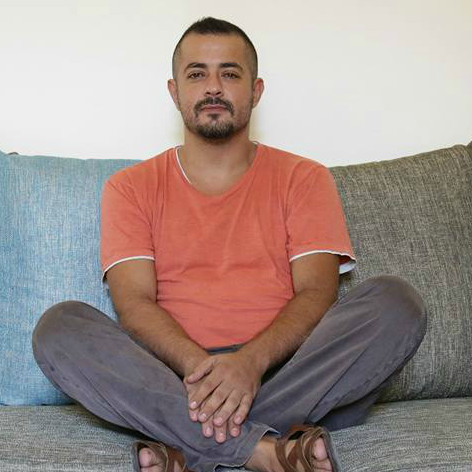Joseph Aoun manages Helem’s newly reopened community center – one of the few safe spaces for LGBTIQ residents of Beirut. He came to the organization seven months ago after several years of independent activism. Joseph joins Helem at a critical moment when its history of legal advocacy for prisoners and defendants is leading to judicial decisions that challenge the understanding of homosexual sex as “contrary to the order of nature.”
As reported in the Washington Blade, “A recent ruling by Judge Rabih Maalouf failed to prosecute a gay couple for having sexual relations. Though homosexuality is illegal in Lebanon, there is no actual law prohibiting it. Instead, gay men are prosecuted under Article 534, which states that ‘any sexual intercourse contrary to the order of nature is punishable” by up to a year in prison. With no clear definition of “order of nature,’ this law is open to interpretation. Maalouf’s ruling was partially based on Article 183, another penal code provision that protects freedom of expression. ‘Homosexuality is a personal choice, and is not a punishable offense.’”
This revolutionary ruling is due in part to Helem’s years of advocacy and legal support for those caught up in raids and forced to undergo discredited anal testing at local police stations. According to Joseph, “Malouf’s decision allows those detained a basis to argue against criminalization. It also affects the habits of the courts to move not to criminalize.”
As progress is made in policing and the courts, public polling shows that acceptance of LGBTIQ people is also growing in Lebanon. A recent poll showed that more than half of the respondents don’t feel homosexuals should be jailed. But, the political arena is a different story. The number of people detained on suspicion of being homosexual doubled from 2012 to 2016. In many jurisdictions religious pressure is being felt by local officials to show that they are working hard to keep society safe.
Many of these incidents are documented by Helem and compiled into reports which have led several law enforcement units to end harassment and even call on Helem to advise on the treatment of LGBTIQ detainees.
All of this impactful work comes from just three paid staff with the support of dedicated volunteers who see its value in their own lives. An annual fundraiser covers much of their operating costs. This year’s event will include an exhibition of art challenging sexual and gender stereotypes.
Helem’s future efforts include devising more innovative ways to challenge Article 534. Since there is no specific civil family law in Lebanon a movement for marriage recognition is not a viable route as it has been in the West. This dedicated creativity in defense of LGBTIQ rights is critical in Lebanon and gladly shared with organizations across the region especially in Jordan, Egypt and Tunisia.

